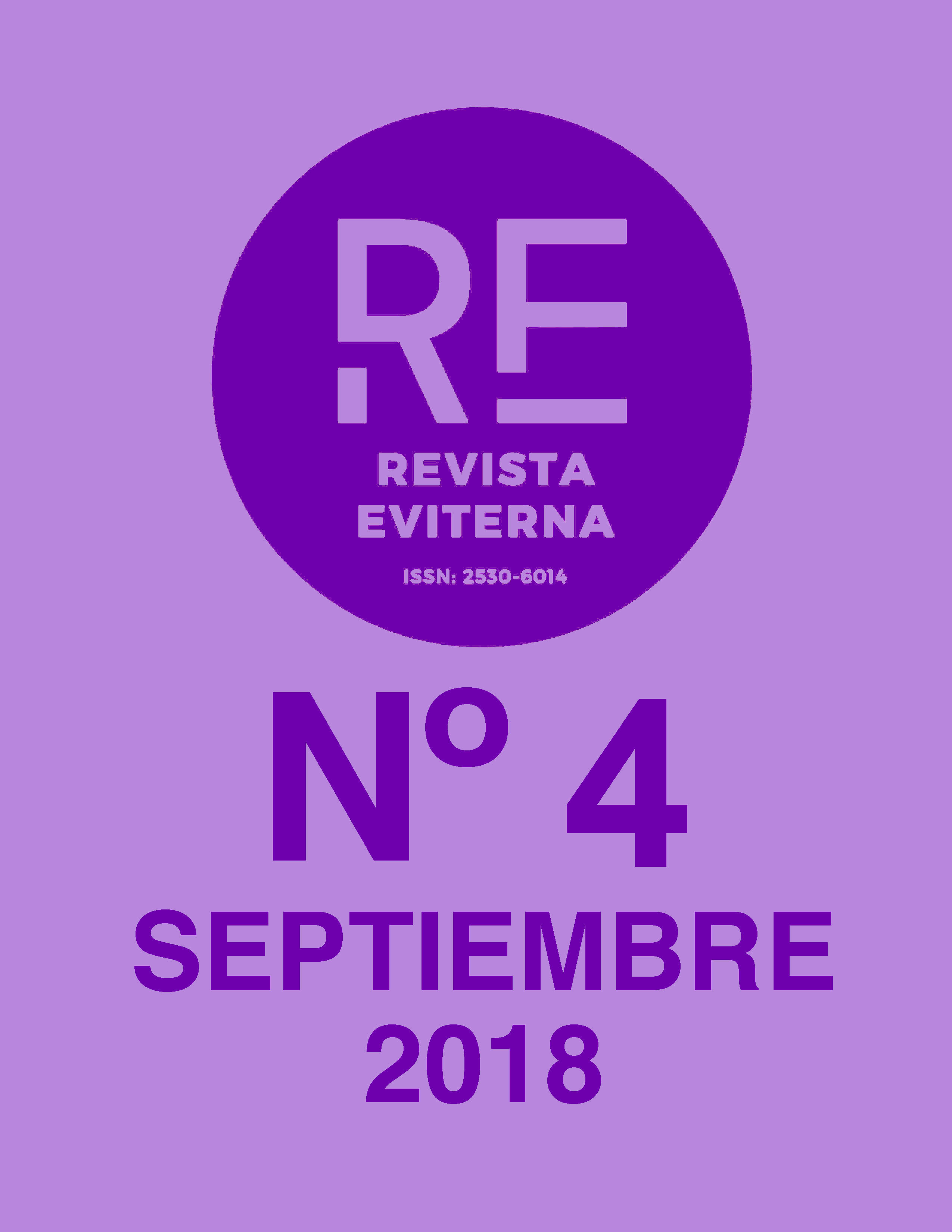The freedom sacrificed. Ambulants' painting in prerevolutionary Russia
DOI:
https://doi.org/10.24310/Eviternare.v0i4.8185Keywords:
Freedom; Russia; Traveling Art Exhibition; Social Art; Art of the revolutionAbstract
The Exhibition Society of Traveling Art, also called "The Travelers" or "The Wanderers" was formed in Moscow in 1870 as a group of artists seeking to deny the academic standards of the School of Fine Arts of St. Petersburg, claiming social freedom to the detriment of artistic freedom. The present study analyzes the artistic transgression exercised by different painters in the social context of prerevolutionary Russia and what was its repercussion on the aesthetic theory of the moment.
Downloads
Metrics
Publication Facts
Reviewer profiles N/A
Author statements
Indexed in
-
—
- Academic society
- N/A
- Publisher
- Universidad de Málaga
References
AIGUABELLA, Javier (1987). Pintores rusos del siglo XIX: del Neoclasicismo a la Revolución, marzo/junio 1987, en Cat. Expo. Museo del Prado, Palacio de Villahermosa: Madrid.
ANDERSON, Perry (1979). El estado absolutista. Siglo veintuno: España
ALLENOV, Mikhail (1991). L’ Art Russe. París, Citadelles: Francia.
BELINSKI, Visarión (1956). Selected Philosophical Works, Foreign Languages Publishing House: Moscú.
BOURDIEU, Pierre (1995). Las reglas del arte. Anagrama: Barcelona.
CALATRAVA, J.Vallés, DAVIDENKO, Marina (2000). Crítica social realista rusa,(vol II), Universidad de Almería: España.
CAPASSO, Verónica.; HANG, Julia (2010). “Arte y sociedad: Rusia y la pugna entre lo viejo y lo nuevo”, en II Congreso Iberoamericano de Investigación Artística y Proyectual. Universidad Nacional de la Plata: Argentina.
FIGES, Orlando (2010). El baile de Natacha: una historia cultura rusa. Edhasa: Barcelona.
GATTO, E. L (1972). La literatura rusa moderna. Losada: Buenos Aires.
GATTO, E.L (1925). Critici letterari russi. A cura. Franco Campitelli: Foligno.
MALIA, Martin (1961). Alexander Herzen and the birth of Russian socialism, 1812-1855. Cambridge, Mass, Harvard University Press: Reino Unido.
MARCADÉ, Valentine (1971). Le renouveau de l'art pictural russe 1863-1914. Lausana: Suiza.
NABÓKOV, Vladimir (2009). Curso de Literatura Rusa. Zeta: Barcelona.
NÓVIKOVA, Olga (1997). Rusia y Occidente (Antología de textos). Tecnos: Madrid.
RÉAU, Louis (1973). El arte ruso. Fondo de Cultura Económica: México
SÁNCHEZ, Adolfo (1970). “Notas sobre Lenin, el arte y la revolución”, en Revista de la Universidad de México, vol. 25, nº 3, pp. 8-13.
TOLSTÓI, León (2012). ¿Qué es el arte? Maxtor: España.
TREVIJANO, Antonio (2002-2003). “Arte”, en La Razón,pp. 5-95 [Disponible online].
IOVLEVA, Lidia (2006). “El arte ruso de la segunda mitad del siglo XIX: los Ambulantes. Pavel Teatriakov y su galería”, en Cat. Expo. ¡Rusia!: novecientos años de obras maestras y colecciones magistrales:/[Biillington; Vzdornov... et al.]Bilbao, España: Guggenheim Bilbao Museoa, D.L. pp. 132- 139.
VAYÁ, Esther (1989). “El Realismo crítico-social ruso: La Sociedad de Exposiciones Ambulantes” en Saitabi, pp. 1-11.
VV.AA (1970-1976). Historia del mundo moderno.Barcelona, España: Cambridge University Press.
WILLIAMS, Raymond. (1997). Marxismo y literatura. Barcelona, España: Península.
Downloads
Published
How to Cite
Issue
Section
License
All the contents published in Revista Eviterna are subject to the Creative Commons Reconocimento-NoComercia-Compartirigual 4.0 license, the full text of which can be found at <http://creativecommons.org/licenses/by-nc-sa/4.0>
They may be copied, used, disseminated, transmitted and publicly exposed, provided that:
The authorship and original source of your publication (Journal, editorial and URL of the work) are cited.
They are not used for commercial purposes.
The existence and specifications of this use license are mentioned.

Copyright is of two kinds: moral rights and patrimonial rights. Moral rights are perpetual, inalienable, inalienable, inalienable, inalienable and imprescriptible prerogatives.
In accordance with copyright legislation, Revista Eviterna recognizes and respects the moral rights of the authors, as well as the ownership of the economic right, which will be transferred to the University of Malaga for dissemination in open access.
The economic rights refer to the benefits obtained by the use or disclosure of the works. Revista Eviterna is published in open access and is exclusively authorized to carry out or authorize by any means the use, distribution, disclosure, reproduction, adaptation, translation or transformation of the work.
It is the responsibility of the authors to obtain the necessary permissions of the images that are subject to copyright.







12.png)



